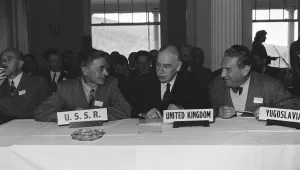International Security is America's leading peer-reviewed journal of security affairs.
Summary
A common argument among scholars and policymakers is that America’s military preeminence and deep international engagement yield significant economic benefits to the United States and the rest of the world. Ostensibly, military primacy, beyond reducing security tensions, also encourages economic returns through a variety of loosely articulated causal mechanisms. A deeper analytical look reveals the causal pathways through which military primacy is most likely to yield economic returns: geoeconomic favoritism, whereby the military hegemon attracts private capital in return for providing the greatest security and safety to investors; direct geopolitical favoritism, according to which sovereign states, in return for living under the security umbrella of the military superpower, voluntarily transfer resources to help subsidize the costs of hegemony; and the public goods benefits that flow from hegemonic stability. A closer investigation of these causal mechanisms reveals little evidence that military primacy attracts private capital. The evidence for geopolitical favoritism seems more robust during periods of bipolarity than unipolarity. The evidence for public goods benefits is strongest, but military predominance plays only a supporting role in that logic. While further research is needed, the aggregate evidence suggests that the economic benefits of military hegemony have been exaggerated in policy circles. These findings have significant implications for theoretical debates about the fungibility of military power and should be considered when assessing U.S. fiscal options and grand strategy for the next decade.
Drezner, Daniel W.. “Military Primacy Doesn't Pay (Nearly As Much As You Think).” Summer 2013
The full text of this publication is available in the link below.



